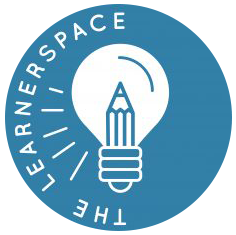In Greek mythology, the Phoenix is a legendary creature that is born out of the ashes of their dead predecessors, thus having becoming an almost universal symbol for renewal. The teaching profession, as we know it, is dying a slow death, in the indisputable awareness that we are no longer needed to dispense our knowledge at a time in which all our students can have access to all accumulated human knowledge just by pulling out their phones.
The new learning paradigm, in effect, calls for a fundamental change in the role of teachers, to move away from being the sage on stage – one of the many such catchphrases that have been employed to convey the need to get teachers away from the front of the classroom – to become learners with their students, facilitators, coaches, guides and mentors. And, for those outside the teaching profession, the huge implications of this massive shift are largely unappreciated. When we are called to stop lecturing it is not just a change in our job description, it points straight to our sense of realization, our vocational call, the reason why we chose to become teachers in the first place.
The common thread for educators is that they opted to embrace this most noble of professions because they loved to share their knowledge with whomever cared to listen to them. Scientists thrive in the thrill of discovery, engineers resonate with the concrete embodiment of their creations, and teachers come alive when they are able to express themselves through passing on their knowledge to others. The change in role entails that we deprive ourselves of what we like to do the most, those long-sought moments when we feel we are in the right place at the right time.
Even as we understand and commiserate with the need to foster independent learning, there is a gnawing feeling of futility even whilst intellectually discerning that we are at our best when we are providing personalized feedback and informing learning, or some other postmodern manifestation that is undoubtedly more effective in the current and future context. Our job as we know it no longer exists. Like the phoenix, we have gone down spectacularly in flames. It is time to be reborn. Let’s sift through the ashes.
I have to confess, and I think it’s the first time that it put it in writing, that I am not a fan of the flipped classroom. I get it, and I understand that contact time with teachers is put to far better use if teachers don’t have to lecture, but the notion of videotaping our lectures (I know this is a gross oversimplification of the flipped classroom movement but, at the end of the day, it is what it is) seems to me not only counterintuitive but also dull and expressionless. It takes a really good teacher, a great communicator, to come across vividly on video, and, if anything, doing this is just an outsourcing of the same pegagogy, inverting time spent on learning, but not, essentially, changing the model.
My teaching days are temporarily over. Having stepped away from the formal school environment, my one regret is that I’ve had to stop teaching. As those who know me would imagine, I’ve turned my classroom into my own future learning experiment. If all goes well, as the year goes by, students become progressively more independent and they go about their chores, on many lessons, without the need for me to explicitly intervene with the whole group. They go about their tasks cooperatively, on their own. That leaves me with time to call them, in small groups, and provide them with personalized feedback on their assignments, so that they can improve them, the proverbial formative assessment taken to a personalized level. I am doing what Hattie and all the other gurus say that we should, spend most of the time giving feedback for learning.
But I have to confess that, despite being the instigator for these changes, and albeit acknowledging that I am, in my own way, fulfilling a very important role in accompanying and nudging and guiding our students in their learning process, I don’t finish that lesson with the greatest sense of accomplishment. I have to understand that, even though I enjoy the interactions and I can palpably feel that they are having a positive effect, it is not what I enjoy the most, what makes me fulfilled.
I’ve long since come to terms with my own change process as a teacher. Truth be said, my essence was never at risk because I realized very early in my career that I had become an educator because I loved to learn, so that placed me amongst those who have been spared by the merciless onslaught brought forth by the open learning scenario. The world of infinitely available knowledge exposes those teachers were in it for the power, because they crave the automatic position of power self-invested by their superior knowledge. That power is no longer available, an ethereal lie, a smokescreen, and those who seek it will be perpetually disappointed.
I digress. What is often overlooked is that it is true that teachers are no longer indispensable to pass on their knowledge, and that this dimension of teaching may very well be replaced by interactive games, videos by world-renowned experts, virtual reality, and the such. But what cannot be outsourced to any computer or the best software or technological innovation, is our passion. Passion is intrinsic to our humanity, and that is why teachers’ jobs will still be safe even with advances in artificial intelligence and robotics. We need to reserve our interventions to those instances where we are at our best, when we thrive in inspiring our students to be passionate about learning, to engage in those interactions that seek to kindle in them the same flame that burns brightly in us, the inexhaustible love and joy for learning.
It is from that prism that we can, indeed, still retain our uniqueness as well as redefine our sense of purpose. This manifestation of our passion for learning may take many forms and shapes, discussions, debates, exploring paradoxes, learning together in many different ways, and, lo and behold, even lecturing, when we feel that the topic is a worthy incarnation of our love for learning. Problem is, once more, that we need to love learning ourselves, and that can’t be faked even through the false ephemeral layers of supposed professionalism and technique.
So the teacher phoenix may indeed, be reborn once more, defying the passage of time and reclaiming the essence of this, the most human and life-giving of professions. If we want to honor our calling, and remain faithful to our vocation, this renewal process should start with a deeper awareness of our relationship with learning. If we are not ready to be reborn as learners with our students, we will only endure a slow and painful agony which will be, without a doubt, also detrimental to our self-esteem.
All in all, this modern-day catalyst of the flat world of learning only serves to bring to the surface of consciousness what we all knew deep within, what truly defines great teachers. The best teachers are those who love learning, and who are able to infect their students with that joyfully contagious bug of wanting to learn their entire lives. When we view change from the prism of learning everything makes sense, and we truly realize that this ineffably crazy world that we are in, this unspeakable uncertain schizophrenic future that lays before us will be, without a doubt, the best of times.

